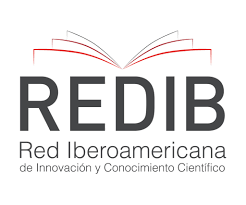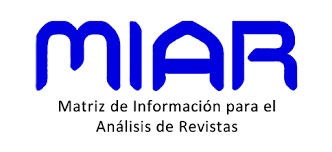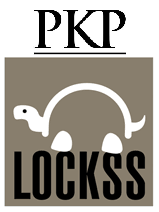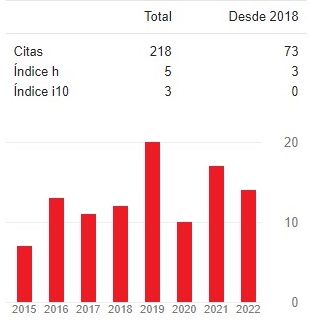Precursores biológicos de la ética y la religión. Antonio Damasio y el imperativo homeostático
DOI:
https://doi.org/10.51743/cpe.401Palabras clave:
altruism, Damasio, ética, filosofía de la biología, homeostasis, imperativo, reduccionismo, religiónResumen
El individuo biológico y los precursores de la acción ético-religiosa: Las reflexiones más recientes en el campo de la biología y de la filosofía de la biología han puesto de relieve lo compleja y poco evidente que resulta la idea de una identidad personal, individual, en el mundo de la vida. Por un lado, al haber perdido una lectura genocéntrica, la vida, ya desde sus primeras manifestaciones (bacteriana, celular), aparece dotada de subjetividad, que se expresa en formas múltiples y cada vez más complejas; por otro lado, el hombre individual aparece como el resultado del entrelazamiento de varias formas vivas. A partir de las reflexiones de Antonio Damasio, el artículo intentará comprender los “precursores” de la acción ética y religiosa del hombre, es decir, todas aquellas premisas biológicas, como las estrategias de cooperación y altruismo, que surgen como condiciones previas para una vida humana. Por otro lado, comprender las discontinuidades y la especificidad de la acción avanzada y personal del hombre, que se expresan en la vida cultural, artificial en general y, en particular, en la interioridad ética y religiosa.
Descargas
Citas
Potter V.R. (1970). Bioethics: The Science of Survival. Perspectives in Biology and Medicine (14), 120-153. DOI: https://doi.org/10.1353/pbm.1970.0015
Potter V.R. (1971). Bioethics. A Bridge to the Future. Englewood Cliffs.
Beauchamp T. L. (2003). The Nature of the Applied Ethics. In: R.G. Frey, & C.H. Wellmann (Eds.). A Companion to Applied Ethics (pp. 1-16). Blackwell Publishing. DOI: https://doi.org/10.1002/9780470996621.ch1
Reichlin M. (2021). Fondamenti di bioetica. Il Mulino.
Pievani T. (2005). Introduzione alla filosofia della biologia. Laterza.
Borghini, A., & Casetta E. (2013). Filosofia della biologia. Carocci.
Minelli A., (2007). Forme del divenire. Evo-devo: la biologia evoluzionistica dello sviluppo. Einaudi; Sterelny, K., & Griffiths P.E. (1999). Sex and Death. An Introduction to Philosophy of Biology. University of Chicago Press.
Depew, D.J., & Weber B.H. (2013). Darwinismo. In: F. Michelini, & J. Davies (Eds.). Frontiere della biologia. Prospettive filosofiche sulle scienze della vita (pp. 145-175), Mimesis.
Wilson E.O. (1975). Sociobiology. The New Synthesis. Harvard University Press.
Dawkins R. (2017). The selfish gene. Oxford Landmark Science. DOI: https://doi.org/10.4324/9781912281251
Dawkins R. (1989). The Extended Phenotype. The Long Reach of the Gene. Oxford University Press.
Barkow J.H., Cosmides L., Tooby J. (Eds.) (1992). The Adapted Mind: Evolutionary Psychology and the Generation of Culture. Oxford University Press. DOI: https://doi.org/10.1093/oso/9780195060232.001.0001
Cavalli-Sforza L.L. (2004). L’evoluzione della cultura. Codice.
Damasio A. (2017). The Strange Order of Things. Life, Feeling, and the Making of Cultures. Pantheon Books.
Mocellin S. (2011). L’homo oeconomicus in evoluzione. Modelli antropologici e teoria della responsabilità sociale d’impresa. Bruno Mondadori.
Persson, I., & Savulescu, J. (2014). Unfit for the future. The need for moral Enhancement. Oxford University Press.
Lavazza, A., & Reichlin M. (2012). Foreword. In: I. Person, & J. Savulescu, Inadatti al futuro. L’esigenza di un potenziamento morale (pp. 159-167). Rosenberg & Sellier.
Lorenz, K. (1973). Die acht Todsünden der zivilisierten Meschheit. Piper & Co.
Gould, S.J., & Lewontin, R. (1979). The Spandrels of San Marco and the Panglossian Paradigm: A Critique of the Adaptationist Programme. Proceedings of the Royal Society B: Biological Sciences (205/1161), 581-598. DOI: https://doi.org/10.1098/rspb.1979.0086
Dupré J. (2001). Human Nature and the Limits of Science. Clarendon Press. DOI: https://doi.org/10.1093/0199248060.001.0001
Cosmides, L. Tooby J. (2008). Can a General Deontic Logic Captures the Facts of Human Moral Reasoning? En W. Sinnott-Armstrong (Ed.). Moral Psychology I (pp. 53-119). The Mit Press.
Severini, E. (2020). Etica ed evoluzionismo. Carocci.
Tomasello, M. (2009). Why We Cooperate? Massachusetts Institute of Technology. DOI: https://doi.org/10.7551/mitpress/8470.001.0001
Maynard-Smith, J. (1976). Evolution, and the Theory of the Games. American Scientist (64/1), 41-45.
Buss, L. (1987). Evolution of individuality. Princeton University Press. DOI: https://doi.org/10.1515/9781400858712
Düpré J., & O’Malley (2013). Vita. In: F. Michelini, & J. Davies (Eds.). Frontiere della biologia. Prospettive filosofiche sulle scienze della vita (pp. 19). Mimesis.
Wilson, J. (1999). Biological Individuality. The Identity and Persistence of Living Entities. Cambridge University Press. DOI: https://doi.org/10.1017/CBO9781139137140
Esposito, R. (2020). Immunitas. Protezione e negazione della vita. Einaudi.
Tauber, A.I. (2002). Moving Beyond the Immune Self. Accademic Press.
Pradeu, T. (2012). The Limits of the Self: Immunology and Biological Identity. Oxford University Press. Gagliasso, DOI: https://doi.org/10.1093/acprof:oso/9780199775286.001.0001
E. (2013). Ambiente. In: F. Michelini, J. Davies (Eds.). Frontiere della biologia. (p. 139). Mimesis.
Margulis, L., & Sagan D. (1986). Microcosmos. Four Billion Years of Evolution from Our Microbial Ancestors. DOI: https://doi.org/10.1525/9780520340510
Summit Books. Spanish translation of M. Piqueras (1995). Microcosmos. Cuatro mil millones de años de evolución desde nuestros ancestros bicrobianos. Tusquetes Editores.
Lovelock, J. (1979). Gaia. A New Look at Life on Earth. Oxford University Press.
Capra, F. (1996). The Web of Life. Doubleday Anchor-Book.
Yong E. (2016). I Contains Moltitudes: The Microbes Within Us and a Grander View of Life. Harper Collins.
Sini, C., & Redi, C.A. (2019). Lo specchio di Dioniso. Quando un corpo può dirsi umano? Jaca Book.
Kohlberg, L. (1971). From Is to Ought: How to Commit the Naturalistic Fallacy and Get Away with It in the Study of Moral Development. In: T. Mischel (Ed.). Cognitive Development and Epistemology (pp. 151-235). Academic Press. DOI: https://doi.org/10.1016/B978-0-12-498640-4.50011-1
Songhorian, S. (2020). Etica e scienze cognitive. Carocci.
Damasio, A. (1994). Descartes’ Error: Emotion, Reason and the Human Brain. Avon Books.
Damasio, A. (1999). The Feeling of what Happens. Body and Emotion in the Making of Consciousness. Harcourt Brace.
Darwin, Ch. (1859). On the Origin of Species by Means of Natural Selection, or the Preservation of the Favored Races in the Struggle for Life. John Murray. DOI: https://doi.org/10.5962/bhl.title.82303
Gould, J. (1983). The Hardening of Modern Synthesis. In: M. Grene et al. (Eds.). Dimensions of Darwinism (pp. 71-96). Cambridge University Press.
Portmann A. (1969). Biologische Fragmente zu einer Lehre vom Menschen. Schwabe & Co.; english transl. of J.
Schaefer (1990). A Zoologist looks at Humankind. Columbia University Press.
Jaroš, F., Klauda J. (Eds.) (2021). Adolf Portmann. A thinker of Self-Expressive Life. Springer. DOI: https://doi.org/10.1007/978-3-030-67810-4
Descola, P. (2005). Par-delà nature et culture. Éditions Gallimard.
Velkley, R.L. (2022). Being after Rousseau: Philosophy and Culture in Question. University of Chicago Press.
Gadamer, H.G. (2003). Schmerz. Einschätzungen aus medizinischer, philosophischer und therapeutischer Sicht. Winter GmbH.
Weizsäcker, V.v. (1987). Die Schmerzen. En Id. Der Artz und der Kranke. Gesammelte Schriften 5. Suhrkamp.
Nussbaum, M.C. (2013). Political Emotions: Why Love matters for Justice? Belknap Press. DOI: https://doi.org/10.2307/j.ctt6wpqm7
Nussbaum, M.C. (2018). The Monarchy of Fear: A Philosopher Looks at Our Political Crisis. Simon & Schuster.
Johnson, M. (2014). Morality for Humans: Ethical Understanding from the Perspective of the Cognitive Science. University of Chicago Press. DOI: https://doi.org/10.7208/chicago/9780226113548.001.0001
Portmann, A. (1969). Biologische Fragmente zu einer Lehre vom Menschen. Schwabe & Co.
Descargas
Publicado
Cómo citar
Número
Sección
Licencia
El autor conserva los derechos patrimoniales (copyright) de las obras publicadas, y la revista favorece y permite la reutilización de las mismas, desde el preprint. Las obras se publican en la edición electrónica de la revista bajo una licencia “Creative Commons Atribución/Reconocimiento-NoComercial 4.0 Licencia Pública Internacional — CC BY-NC 4.0”, y se pueden copiar, usar, difundir, transmitir y exponer públicamente .
Los autor/es transfieren parcialmente los derechos de propiedad del presente trabajo para las ediciones impresas y online, siempre que:
- Se cite la autoría y la fuente original de su publicación (revista, editorial y URL de la obra).
- No se usen para fines comerciales.
- Se mencione la existencia y especificaciones de esta licencia de uso.
Se declara además haber respetado los principios éticos de investigación y estar libre de cualquier conflicto de intereses.
«C.P.E.» anima a los autores y a la comunidad científica a la máxima promoción y difusión de los trabajos en su versión definitiva a través de:
1) Su lista de contactos (mails) y redes sociales (Facebook, Twitter, LinkedIn…).
2) Repositorio institucional de su Universidad y repositorios públicos (Mendeley, Cosis…).
3) Redes sociales científicas (ResearchGate, Academia.edu, Kudos...).
4) Web personal o institucional, blog, etc.
5) Google Scholar, ORCID, ResearchID, ScopusID, Dimensions, PlumX...
6) Ejemplares impresos adquiridos directamente y enviados a especialistas para su lectura y posterior citación si procede.




















1.png)
1.png)

1.png)





.png)
.png)

.png)
1.png)
1.png)
